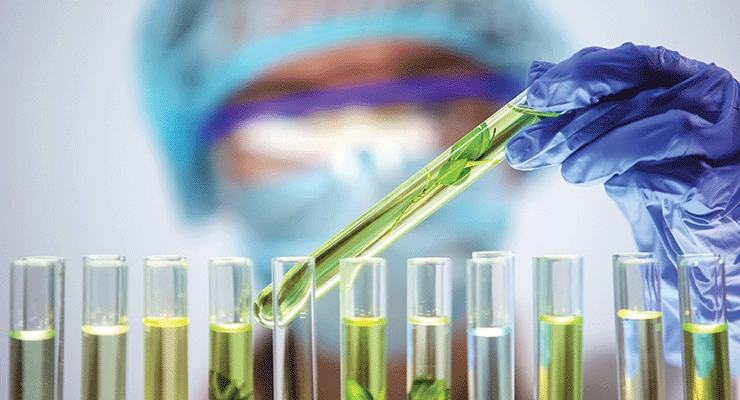Features
The True Cost of Quality
Supplier partnerships are an extension of brands, and have real world implications for your reputation.

By: John Davidson

It seems not a month goes by without a news story about a food product being tainted in some form. Supplements made from materials of natural origin are not immune. And this begets the saying that not all (insert widget here) are created equal.
If the mindset is one lacking proper education, then this may lead to selecting your enzymes or probiotics (or other nutra-material) based on who has the lowest (“best”) cost. By doing so, you may unwittingly be purchasing tainted, unsafe, or low-quality materials. And this may be a potential death knell for your brand.
Look at it this way: there is an adage that says you can choose two attributes from a list of three—good, cheap, or fast. If you choose good and cheap, it will not be fast; cheap and fast, it will not be good, etc. How much are you willing to risk when it comes down to protecting your reputation?
How Quality Affects Risk Management
Risk management is a topic that is a cornerstone of brand protection, and a pillar of sound business practices.
Quality is a key consideration when choosing who you will align yourself with to create and sell products. Quality in goods and services, but also of people and company culture are important to investigate.
Too often, decisions about quality are overly price driven. The cost of quality is typically under-valued until it is not there. Once a company experiences a quality failure, it usually learns painful lessons about the true cost of quality.
The dietary supplement market is a competitive industry and companies must find the correct balance between costs and market price to remain viable. Uncompromising quality will sustain a good reputation and popular brand. Therefore, it is vital to know the quality attributes necessary in business partners match the quality requirements of your business.
Purchasing departments are tasked with cost reduction and inventory management. It is therefore understandably tempting to make decisions about ingredients to be used in products based on the lowest price. This could be a fatal mistake and one to be carefully considered, especially when it comes to specialty ingredients, such as enzymes and probiotics. It may be cheaper to purchase ingredients from newer players with minimal or unknown experience and quality, but at what cost?
Partnering with a supplier (or vendor) that is as unwilling to compromise its quality is a critical decision. Experience tells the story. Working with a company that has a long history of proven performance and that understands quality provides great value and can be a huge factor in risk management decisions, beyond the cost of their products alone. Quality goes much deeper than a product specification. It involves total commitments throughout the entire company.
One reflection of this commitment may be seen in the certifications a company maintains. Quality certifications, such as ISO, are indicators of the depth of quality not only of the products but of the entire company, its personnel, and business practices.
Companies tend to use genuine ingredients and business practices for valid reasons. Straying from the familiar may result in unintended consequences. Taking risks with unknown or unproven ingredients or services from an unknown or unproven company may yield unexpected and disappointing results.
The cost savings may be meager in the end if poor quality is allowed to compromise reputation. It is more important today than perhaps any time in the past that you know who you are doing business with and that the supplier’s values match yours. Don’t let the pursuit of cost reductions compromise your quality, and thus, your reputation.
Examples
Enzymes, which are specific in their catalytic activities, are available from a variety of sources—fungal, bacterial, plant, and animal. Further, dietary supplement enzymes are produced by various manufacturers in different countries. The manufacturing conditions may vary widely from country to country based upon factors such as sanitary conditions and water quality. A comprehensive evaluation must be made to determine the quality attributes of each individual enzyme available and its fit for purpose. Even enzymes from similar sources may vary widely in their characteristics and reactions that they are capable of catalyzing.
Decisions about which enzyme to purchase should not be based on price alone. Microbial contamination, heavy metals, pesticides, GMOs, and other prohibitions must be carefully evaluated as well as the chemical and physical properties.
Probiotic organisms have many similar issues to consider and others that are distinct. Probiotics, like enzymes, are also available from various manufacturers. Genus, species, and strain specificity are directly related to the benefits each may impart after consumption. In order to establish these benefits and adequate doses, as well as safety, many tests and trials must be performed.
It is not enough to demonstrate one organism is similar to another. Human clinical investigation is necessary to establish health benefits and claims that are appropriate to that particular strain. Regulatory status, such as Generally Recognized As Safe (GRAS), or European Food Safety Authority (EFSA) Qualified Presumption of Safety (QPS) status, are important indicators of both safety and efficacy.
A key distinction is that probiotics are (supposed to be) alive at the time of manufacture, and more critically, at the time of consumption. Reputable suppliers can prove viability and will supply you with the evidence you need to confidently market this fact to retailer and consumer bases.
Other factors to consider about your ingredient supplier include its ability to respond to documentation and testing requests you will no doubt encounter. Testing methods and reports as well as regulatory documentation must be readily available and provided in a timely manner. Some suppliers are simply distributors or ingredient brokers that do not have the technical expertise to supply this information without extensive delays—and sometimes the credibility of documentation is questionable at best, because it is more difficult to navigate to the original source of the material.
Consistency of supply is important, especially as demand increases. Price consistency is important as well to maintain costs and pricing controls. There’s nothing worse than creating demand for something you cannot consistently supply.
In summary, a rose may not be a rose just because it looks like one. Dig deeper and know exactly what you are buying, where it’s coming from, and who you are doing business with. Your brand and reputation depend on it.
John Davidson is director of innovation and education at Deerland Probiotics & Enzymes, Kennesaw, GA, which specializes in developing science-backed solutions that benefit microbiome health, using probiotic, prebiotic and enzyme technology. In addition to branded ingredients and customized formulations, Deerland offers turn-key manufacturing services, including bulk blends, capsules, stick packs and tablets; as well as bottling and labeling. For more information visit www.deerland.com.




















